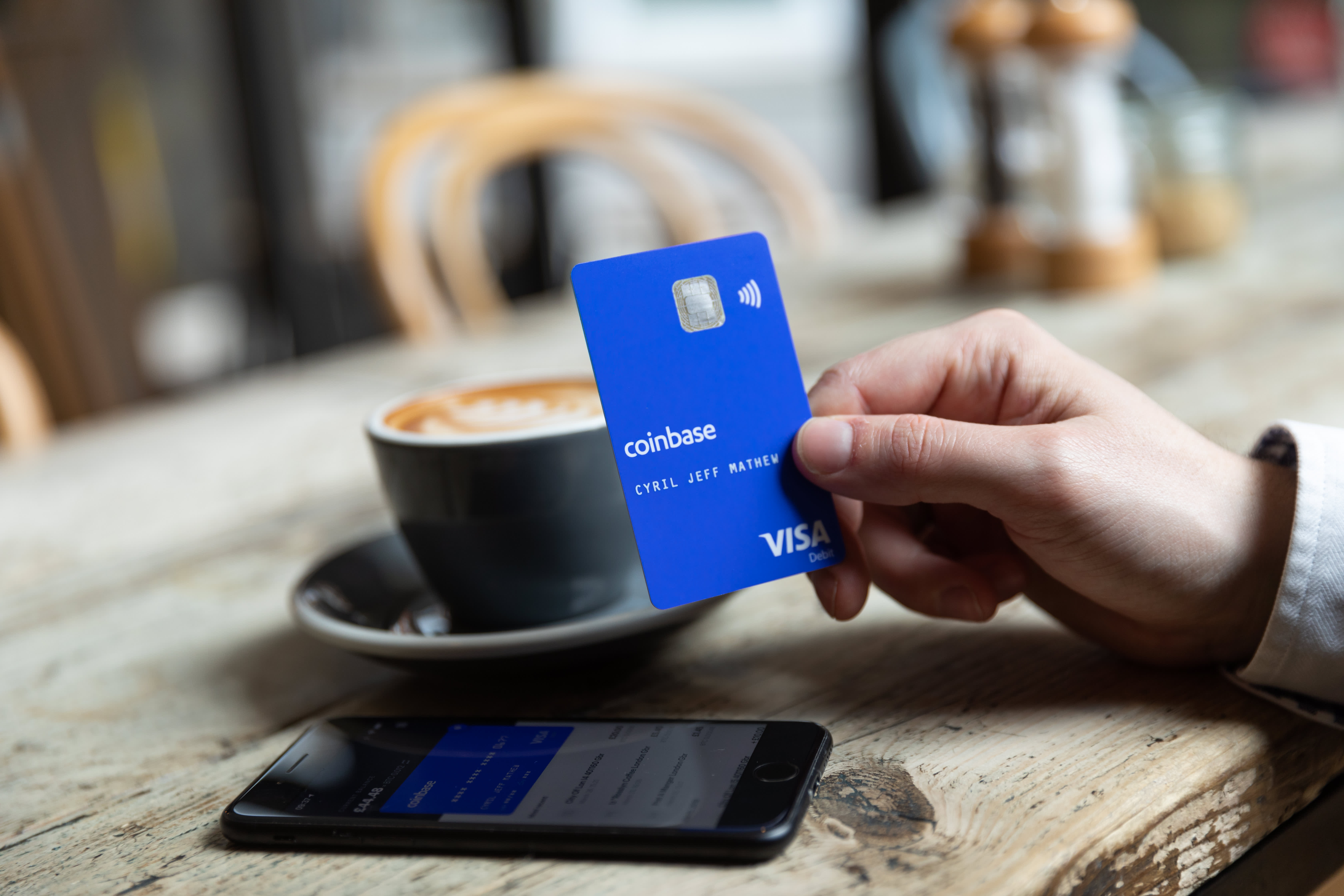
Coinbase launched its own debit card in an effort to promote the use of cryptocurrencies in payments as well as investing.
Coinbase
Visa said Wednesday that more than $1 billion worth of cryptocurrency was spent by consumers globally on goods and services through their crypto-linked cards in the first six months of the year.
By comparison, Visa estimated crypto spending at only a fraction of that amount in the same periods last year and in 2019. The payments giant did not release exact numbers.
“We are doing a lot to create an ecosystem that makes crypto currency more usable and more like any other currency,” Visa CFO Vasant Prabhu told CNBC. “People are exploring ways in which they can use cryptocurrencies for things they would use normal currencies for.” He added, “There are lots of issues in terms of volatility, etc. But that’s up to the owners of cryptocurrencies to manage and track.”
According to recent research from Visa rival Mastercard, 93% of North American consumers plan to use cryptocurrency or other emerging payment technology, such as biometrics, contactless, or QR code systems, in the next year. The study also showed that 75% of millennials would use crypto currency if they understood it better.
“We see a lot of volume on our [network] of people buying crypto currencies at these various regulated exchanges and as far as we can see that trend continues,” Prabhu said.
This summer, Mastercard will launch a card with crypto exchange Gemini, co-founded by billionaires Cameron and Tyler Winklevoss. The card will allow consumers to earn cryptocurrency as a reward. However, cardholders will not be allowed to access their digital wallet on the site.
Visa also announced Wednesday the FTX cryptocurrency platform, founded by billionaire Sam Bankman-Fried, would be added to its Fintech Fast Track Program, focused in part on making cryptocurrency more practical for consumer and business spending.
Circle, BlockFi and Coinbase, which went public in April on the Nasdaq, are current Visa partners that allow cardholders to spend from their cryptocurrency wallet at more than 70 million merchants globally. Visa estimated crypto-linked cards and other emerging payments including biometrics and QR code have the potential to disrupt the $18 trillion spent every year with cash and checks globally.
Bitcoin’s market cap topped $1 trillion for the fist time in February and hit an all-time high near $65,000 per unit in April due to retail investor enthusiasm during the coronavirus pandemic as a store of value and an inflation hedge. However, bitcoin has fallen roughly 45% since then — and last month, it plunged briefly below $29,000 where it started the year.
Prahbu said Visa has no near-term plans to add any cryptocurrency to its balance sheet like Tesla, MicroStrategy and other companies have done recently.
“We don’t hold crypto currencies on our balance sheet today. We hold currencies on our balance sheet that we need to run our business. We hold currencies that we get paid in or we pay people in. That tends to be the dollar, euro, pound. So we don’t have plans to hold crypto currency because it’s not typically the way we get paid or the way we pay people,” he said.
Visa is set to report quarterly earnings on July 27.
Correction: Visa is scheduled to report quarterly earnings on July 27. An earlier version misstated the date.
from WordPress https://ift.tt/3wpabRS
via IFTTT

No comments:
Post a Comment